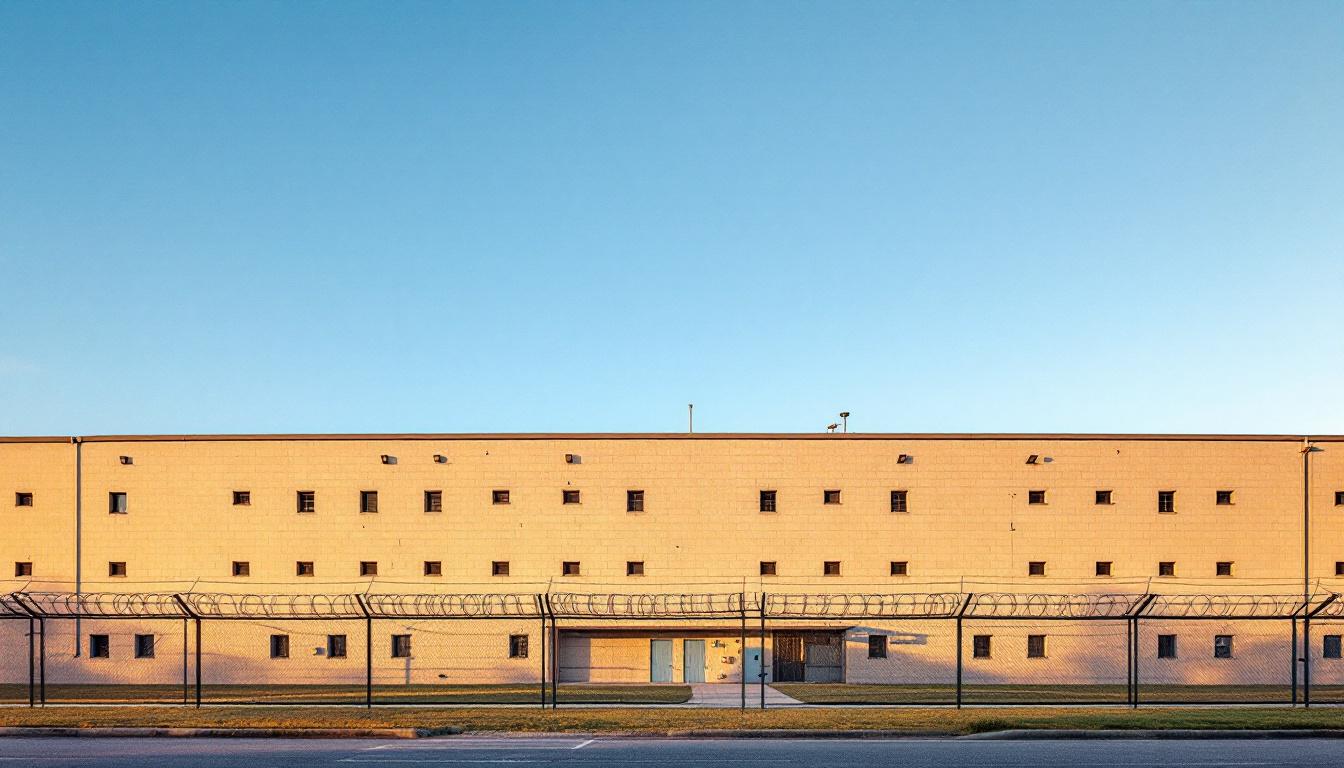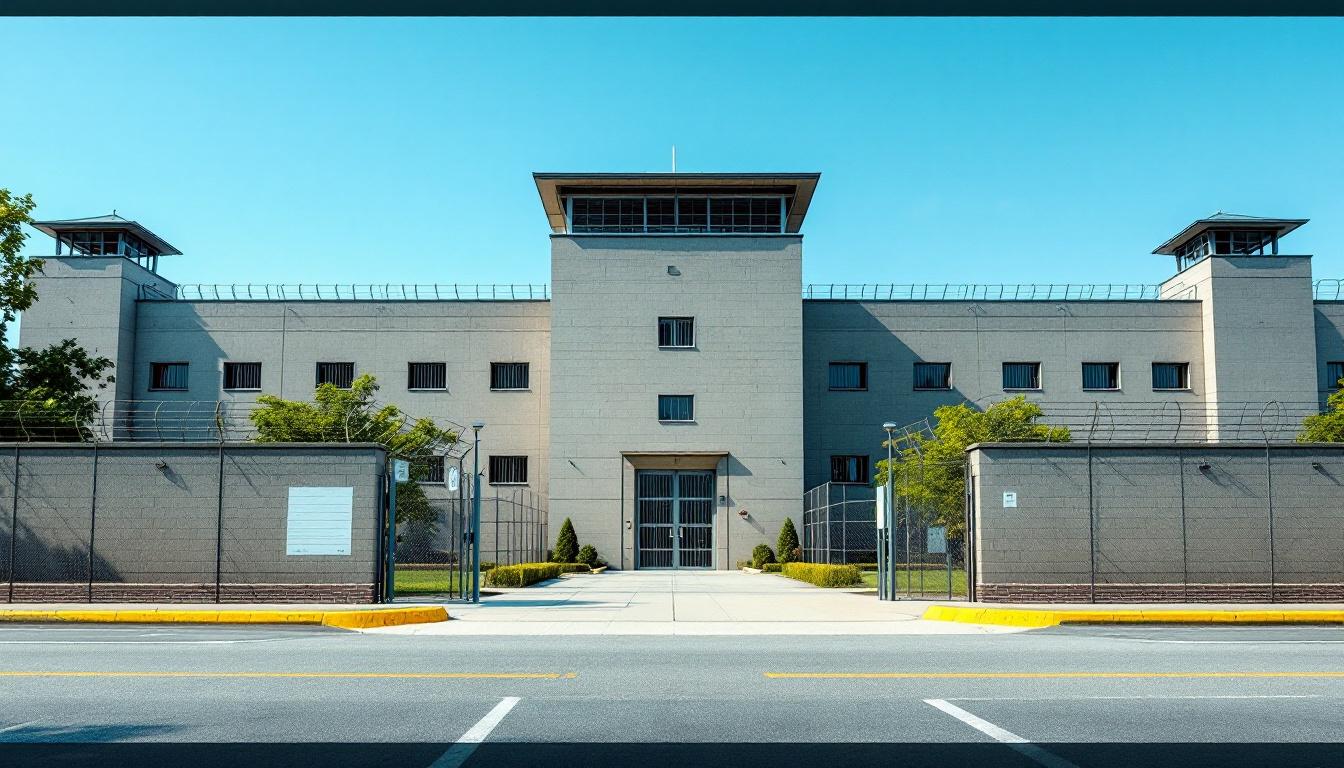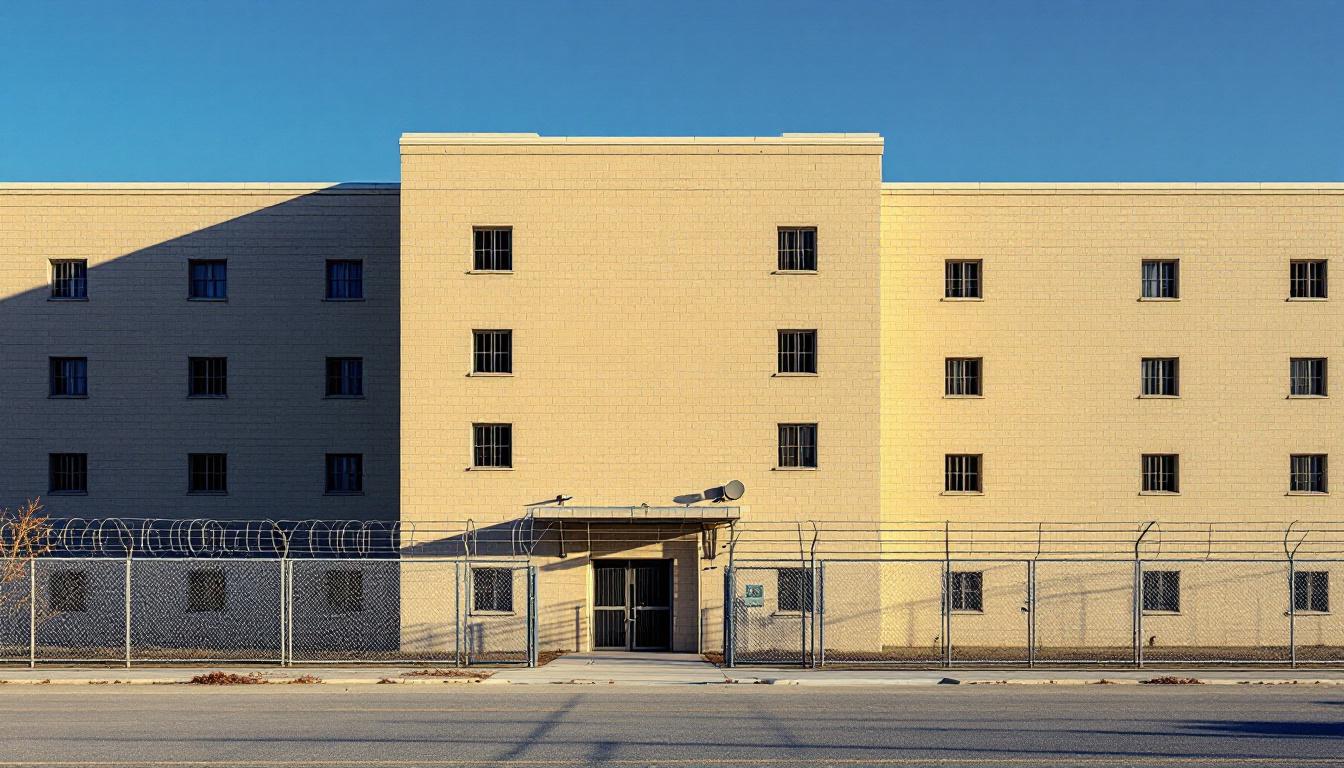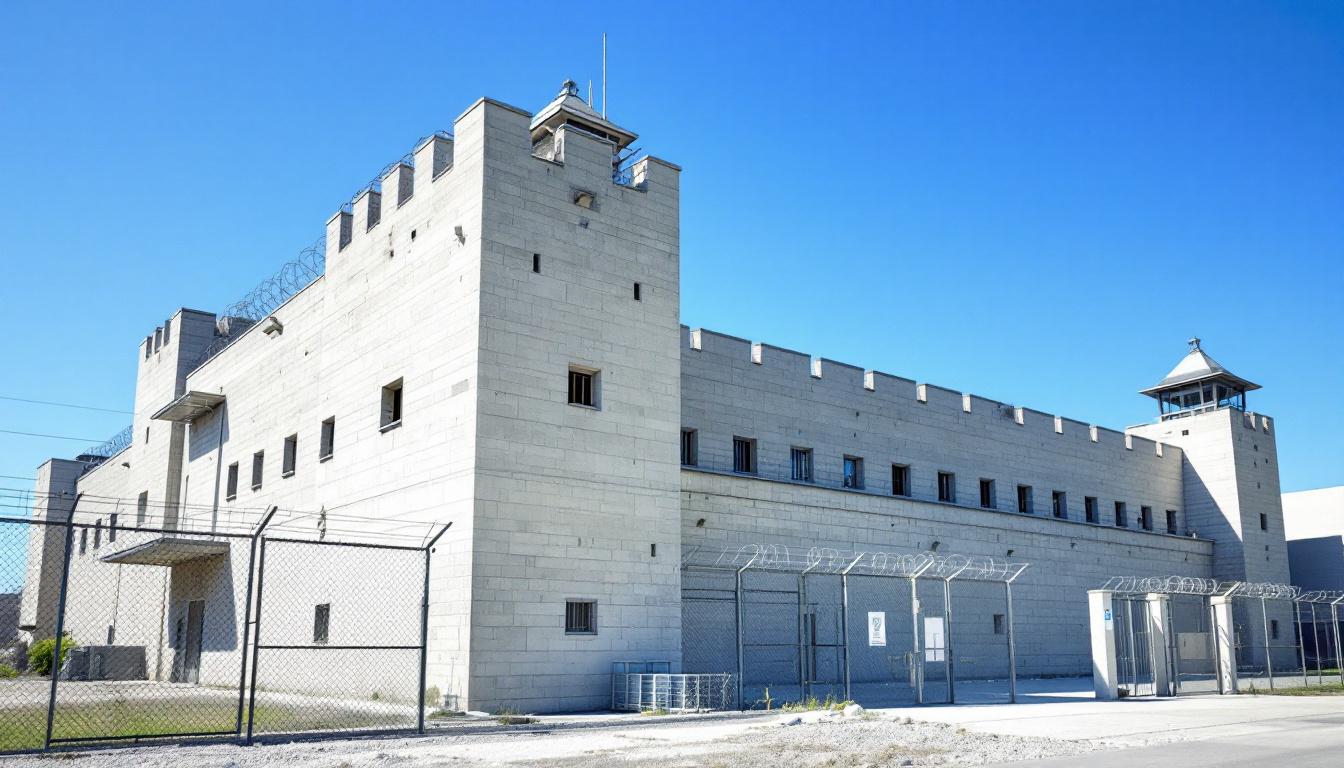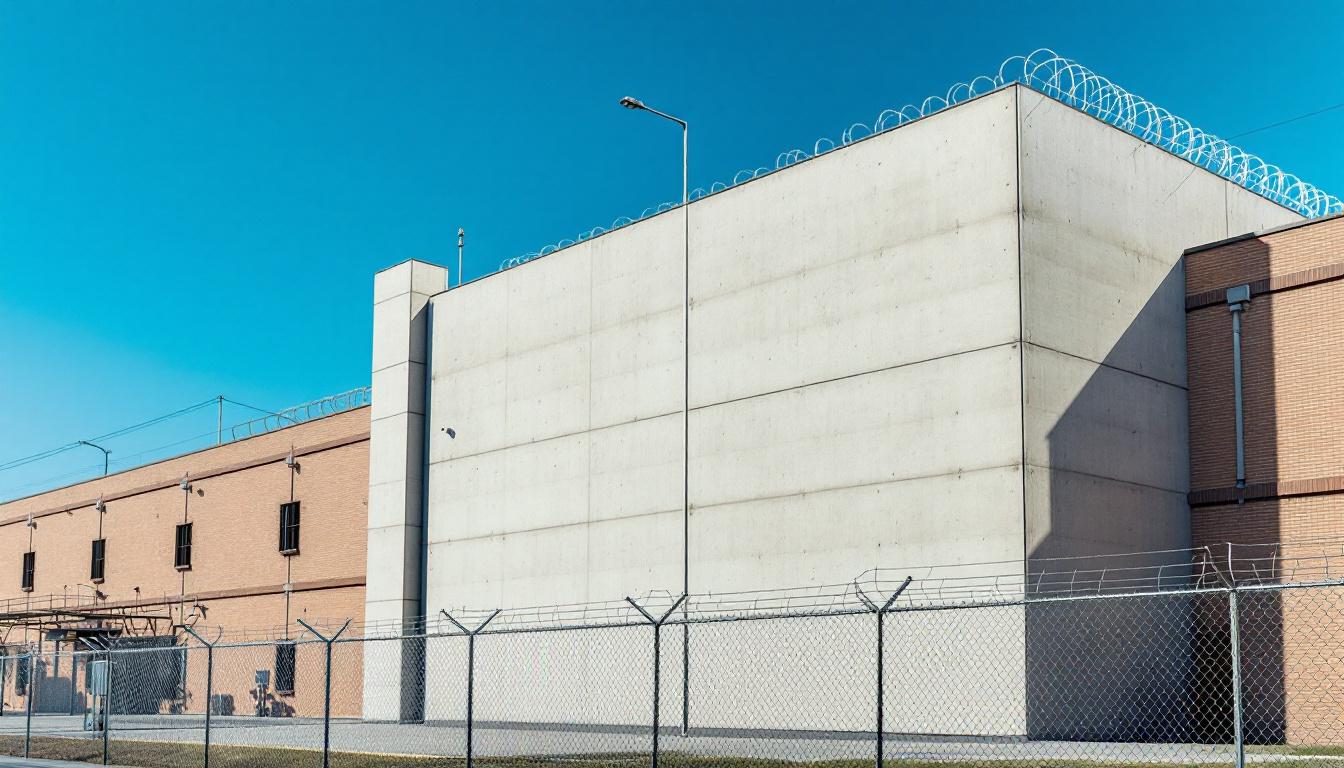
Quick Navigation
How to contact an inmate at FCI Berlin
This comprehensive guide will walk you through how to connect with an inmate at FCI Berlin. Follow the steps below to find an inmate and send letters and photos:
- Search for the inmate using our search tool below
- Create your account or log in to Penmate
- Write your message (up to 6,000 characters)
- Send instantly - inmates receive printed copies daily
Find an Inmate
Search for an inmate to start communicating today
Tip: You can search by first name, last name, or inmate ID number
To contact a person at FCI Berlin start by searching for the person on the official facility website. Perform a search by following these steps:
- Step 1: Enter their first name and last name into the search form and click "Search"
- Step 2: Locate their inmate record
- Step 3: Write down their Inmate ID and any housing information provided
Important! Be sure to enter the person's full name. Nicknames should not be used.
How to Send Messages to Inmates

You can use your phone or computer to send emails, letters, and photos to an inmate. Messages are sent electronically to inmate tablets or kiosks at the facility. If you would like to send a message, start by searching for an inmate at FCI Berlin.
Sending Photos and Postcards

A great way to send love and support to a loved one at FCI Berlin is to send photos and postcards. It only takes a few minutes to send photos from your phone and it makes a huge difference. You can also mail postcards with words of support and inspiration, or design your own postcard for special moments like birthdays and holidays.
Important! Be sure not to send any explicit photos or they may not be approved by the facility. You can also use a photo printing app like Penmate to make sure your photos are printed at the correct size (4x6 or 3x5) and are mailed according to the rules and regulations of FCI Berlin.
Frequently asked questions about FCI Berlin
-
How long does it take to deliver a message?
If you're sending an email message your letter is usually delivered within 24-48 hours. For messages sent via mail you should expect delivery within 3-7 days. All messages will need be approved by FCI Berlin.
-
How much does it cost to send a message to FCI Berlin?
You can send a message free using your phone or mail a message via USPS for the price of a $0.60 stamp and envelope. You can also purchase credits or e-stamps from services starting at $1.99.
-
What services can I use to contact an inmate at FCI Berlin?
Penmate
You can use Penmate to send letters and photos to an inmate from your phone. It's an easy way to stay in touch during your loved one's incarceration. Use the inmate locator to find an inmate's location and contact information, then you can send messages within a few minutes.
Securus messaging
Securus may be another option for communicating with an inmate at FCI Berlin. You can create a friends and family account and purchase credits to send messages. All messages will be reviewed and must be approved by the facility.
JPay
Some county jails and state prisons may support sending messages with JPay. You must register an account with the system, find your loved one, and purchase stamps to send messages. For some locations you can also attach photos.
Smart Jail Mail
You may also check if Smart Jail Mail is available at FCI Berlin. Smart Jail Mail is operated by Smart Communications and has contracted with some state and county jails. After purchasing credits, your messages and photos are sent to the facility, printed out, and then handed out to your loved one.
-
What is the mailing address of FCI Berlin?
Mailing address:
FCI Berlin
1 Success Loop Rd
Berlin, NH 03570
Phone: (603) 342-4000 -
What are the visiting hours at FCI Berlin?
Visiting hours at FCI Berlin vary by housing unit and security level. Generally, visits are scheduled on weekends and holidays, with some facilities offering weekday visits. Contact the facility directly at (603) 342-4000 or check their website for the current visiting schedule. Visits typically last 30-60 minutes and must be scheduled in advance.
-
What items are prohibited when sending mail to FCI Berlin?
Prohibited items typically include: cash, personal checks, stamps, stickers, glitter, glue, tape, staples, paperclips, polaroid photos, musical or blank greeting cards, hardcover books, magazines with staples, and any items containing metal or electronics. Only send letters on plain white paper with blue or black ink. Photos must be printed on regular photo paper (no Polaroids). Always check with FCI Berlin for their specific mail policies.
-
How do I send money to an inmate at FCI Berlin?
You can send money to an inmate at FCI Berlin through several methods: 1) Online using JPay, Access Corrections, or the facility's approved vendor, 2) Money orders mailed directly to the facility with the inmate's name and ID number, 3) Kiosks located in the facility lobby, or 4) Over the phone using a credit or debit card. Fees vary by method, typically ranging from $2.95 to $11.95 per transaction.
-
Can I schedule a video visit with an inmate at FCI Berlin?
Many facilities now offer video visitation as an alternative to in-person visits. At FCI Berlin, video visits may be available through services like Penmate, Securus Video Connect, GTL, or ICSolutions. Video visits typically cost $10-20 for 20-30 minutes and must be scheduled in advance. You'll need a computer or smartphone with a camera and reliable internet connection. Contact the facility for their specific video visitation policies and approved vendors.
-
What identification do I need to visit an inmate at FCI Berlin?
All visitors must present valid government-issued photo identification such as a driver's license, state ID, passport, or military ID. Minors must be accompanied by a parent or legal guardian who can provide the minor's birth certificate. Some facilities require visitors to be on the inmate's approved visitation list, which may require a background check. Contact FCI Berlin for specific ID requirements and visitor approval procedures.
-
How can I find out an inmate's release date?
To find an inmate's release date at FCI Berlin, you can: 1) Use the online inmate search tool if available, 2) Call the facility's records department, 3) Contact the inmate's case manager or counselor, or 4) Have the inmate provide this information during a call or visit. For privacy reasons, some facilities only release this information to immediate family members.
Facility Overview
Official Website

About FCI Berlin
Federal correctional institutions serve as integral components of the nation's justice system, designed to balance security requirements with rehabilitation objectives. Within Pennsylvania's correctional landscape, FCI Berlin operates as a federal facility situated in the small community of Berlin, contributing to the broader network of correctional institutions that serve the Mid-Atlantic region. This PA correctional facility represents the federal government's commitment to maintaining secure environments while preparing individuals for eventual reintegration into their communities.
The facility's location in Berlin, Pennsylvania, positions it within a region that has historically supported various correctional operations, benefiting from the area's established infrastructure and community resources. FCI Berlin, NH typically maintains security protocols appropriate for its designated classification level, while the population services may include educational programming, vocational training opportunities, and substance abuse treatment programs. The institution generally operates within the Federal Bureau of Prisons' framework, adhering to standardized policies that emphasize both accountability and preparation for release. Staff members typically work to create structured environments that support personal development while maintaining necessary security measures.
As part of the federal correctional system's Mid-Atlantic network, the facility often coordinates with other regional institutions to ensure appropriate placement and program availability for individuals in federal custody. The correctional facility may offer various support services designed to address the diverse needs of its population, potentially including mental health resources, religious services, and family visitation programs. These comprehensive approaches generally align with federal rehabilitation philosophies that recognize the importance of maintaining family connections and developing practical skills that support successful community reentry upon release.
Programs & Services
Through comprehensive therapeutic communities and structured educational pathways, the population at FCI Berlin receives multifaceted support designed to foster personal growth and successful community reintegration. The facility's approach to rehabilitation emphasizes skill development and behavioral modification through evidence-based programming that addresses both immediate needs and long-term objectives. This holistic framework recognizes that meaningful change occurs when individuals have access to diverse opportunities for self-improvement and practical skill acquisition.
Educational and vocational programs form the cornerstone of the facility's rehabilitative efforts, offering the population pathways to enhance their academic credentials and develop marketable job skills. Vocational education initiatives typically encompass various trade-specific training programs that align with regional employment opportunities, while comprehensive education programs may supply both basic literacy instruction and advanced coursework. Additionally, distance learning opportunities enable participants to pursue higher education goals, creating flexible pathways for intellectual growth that can continue beyond their period of incarceration.
The facility's therapeutic communities provide structured environments where the population can address underlying behavioral patterns and develop healthier coping mechanisms through peer support and professional guidance. These specialized programs often include group counseling sessions, life skills workshops, and mentorship opportunities that emphasize personal accountability and positive social interaction. Furthermore, essential support services such as laundry services ensure that daily operational needs are met efficiently, allowing participants to focus their energy on rehabilitation programming and maintaining connections with family members through various communication channels that facilitate ongoing relationships during their transition period.
Daily Life & Visitation
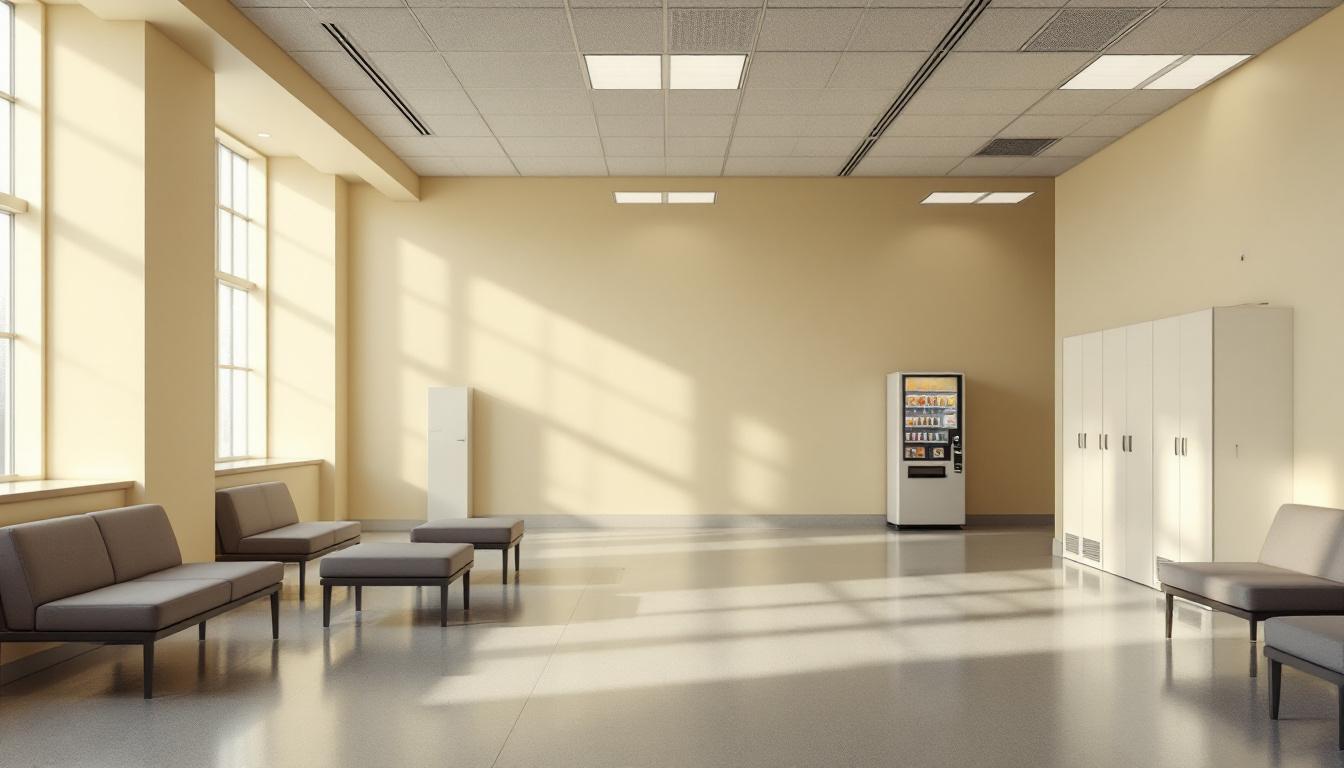
The carefully orchestrated organizational framework at FCI Berlin currently shapes every aspect of the population's daily experience, with structured routines that begin before dawn and continue through evening hours. The facility's systematic approach to managing daily operations ensures that residents move through predetermined schedules that typically include work assignments, meals, recreation periods, and programming activities, all coordinated through a network of housing units and common areas. This comprehensive structure continues to provide predictability and order, allowing the population to navigate their daily responsibilities while maintaining access to essential services and support systems.
Living accommodations within the facility generally consist of housing units that accommodate multiple residents, with each person typically assigned a designated space that includes basic furnishings and storage for approved personal property. The population usually shares common areas within their housing units, including dayrooms and recreational spaces where they may gather during designated periods. Additionally, dining arrangements follow structured schedules, with meals served in central locations where residents gather according to their housing assignments, creating opportunities for social interaction while maintaining operational efficiency throughout the facility.
The facility's programming structure supplies various opportunities for personal development, including educational courses, vocational training, and recreational activities that may include fitness programs, library access, and organized sports. While work assignments provide structure to daily routines, they also offer residents the opportunity to develop skills and contribute to facility operations through positions in areas such as food service, maintenance, and administrative support. Family connections remain an important component of daily life, with visitation policies that typically allow for regular contact with approved visitors, along with communication options that may include telephone access and correspondence, helping the population maintain vital relationships with their support systems outside the facility.
Ready to Connect?
Start communicating with your loved one today
Search for an Inmate
